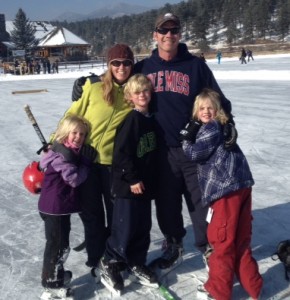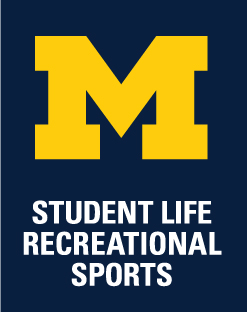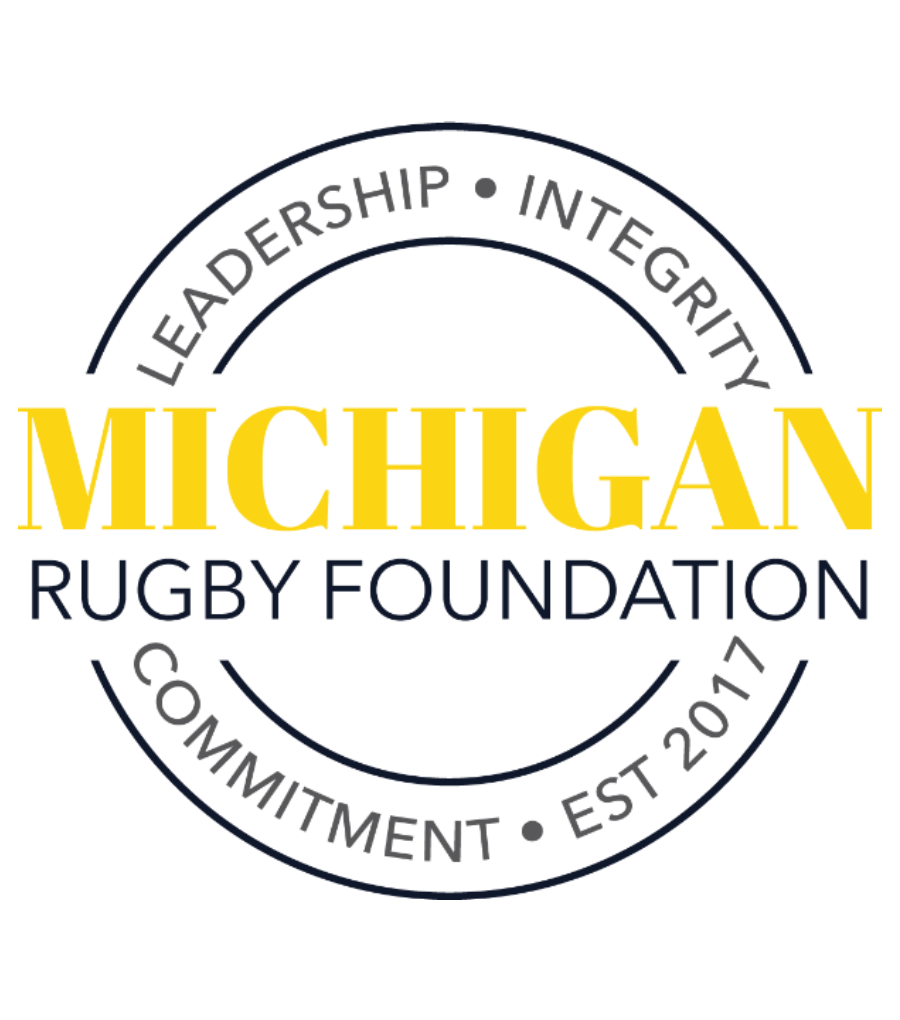When did you play?
My father, Dr. Paul Knight, played rugby for years at U-M so I was hanging around the club since the early 80’s. I remember loitering at post-game festivities on Church Street and across the street from Elbel. Indoctrinated at an early age.
I came out to play in the fall of 1987 with my first practice at the old Tartan turf. Man, what a group of angry men! 16 years old and not more than 130 pounds at the time, I got yelled at a lot. Early on, it was just a privilege to be on the field. For someone who grew up on the sidelines of U-M rugby, to take the field with some of the best players ever to play for UMRFC is an incredible memory and a source of great pride. At the time, I was just trying not to screw up. I played for 2 seasons before starting college at MSU.
I returned to play Senior Division I at U-M in 1990. I had a little more confidence by then and the team was still extremely talented. As I recall, we travelled to Chicago to play the Lions in the fall of 1990 with the winner having the inside track to the Midwest championship. We fell short that day, but the level of rugby at U-M was extremely high during that time.
I played with UMRFC through the summer of 1997, with a few tours to Savannah (2000) and Missoula (2002) capping off my more than memorable days playing with the Olde Blue.
What is your favorite memory or memories as a member of the club?
Playing with my dad was a pretty special experience. My older brother also played rugby and attended an Olde Boys weekend, so the three of us played at 9, 10 and 12, which was cool.
The off field relationships and experiences also provide great memories, although most of those should be told at an Olde Boys weekend. Jim Hagerman as my “chaperone” on my first road trip to Midland, Jeff Hagan providing a “tour” of the Indy Speedway offer but a taste from my early years.
On the field, November 2, 1991 stands out. Retirement had thinned the ranks a bit and we were not having the same success in DI as the year prior. Enter the Chicago Lions and their host of Midwest players on Palmer Field. Exit the Lions with their tails firmly tucked between legs. It was also my 21st birthday. I could be mistaken, but I think the game really turned on a U-M penalty kick that hit the posts and bounced back to an alert Jeff Hagan who gathered the rebound and scored the try. I also remember a mature and unstoppable Curt Small in the centers that day. Thanks fellas.
The club moved to DII around 1994. I remember a meeting at Tom Warburton’s home where almost the whole team got together and determined we were going to win the national championship and formulated a plan to do so. The core of that team was very tight. As it happened, we were successful but to have that dedication and conviction with a group of friends working toward a common goal with such a payoff at the end was something I will never forget. An end-to-end try to clinch the victory, and Lee Gray and Brian Williamson running on as subs and physically crushing the opposition, who wanted nothing more than to give up in the face of such ferocity, are etched in my memory.
Other on field successes in 15’s that stick out are Michigan Cup championships in Flint and on Belle Isle. I could really write for days as I recall road trips to Milwaukee, Chicago (Perps, I should have stayed and taken the train!), Louisville, Buffalo (Scott Crisler met his wife when he, Russ Hanshue and I detoured for a pit stop in Canada on the way to Buffalo!), etc. Although I have not spoken with most teammates in years, those experiences make up a bond that will exist forever.
And then there was 7’s. The seeds for the DII 15’s success were actually sown in the summer of 1994 when U-M qualified for nationals by placing second in the Midwest. We experienced some success on the field, beating Aspen and eventual champion San Francisco Old Blue (double switch, eh JW?) in pool play, but failed to move on to the semifinals after losing the tiebreaker (thanks a lot Collis, you bleeder). I think that showed the club the quality of talent and our ability to compete on a national level. However, for anyone who was on that trip, rugby was only half of the experience. Almost 20 years later, and I mean it from my heart when I say thank you to Bob and his wife, his employees and their friends, and I still regret not skipping our flight on Sunday evening.
From approximately 1993 to 1996, U-M was very successful in 7’s, winning a number of tournaments in Michigan (Ed Spybrook running over poor souls in Battle Creek!!!), Chicago and Cleveland off the top of my head. Lakefront 7’s in Milwaukee was really the only tournament I can remember that we could not get over the hump, but beating Metropolis in the 1995 Midwest 7’s championship hosted in Milwaukee was a pretty good consolation.
Did you have any special honors during your time with the club?
I never maintained an administrative position with the club. I served as field captain quite a bit and together with Elmo Pratt, Mark Nemec, Ashby Kinch, Tom Warbarton, Sam El Ebrashi and others I am certainly forgetting, we operated as “coaches by committee” for a lot of U-M rugby between 1993 and 1997.
Funny how time has changed the landscape of American rugby. During my years at U-M, select side rugby seemed the natural extension for playing rugby outside of your club season. Now these teams are all but extinct. I was fortunate to play for a number of sides during that time, including Michigan Collegiate and Senior select sides, Midwest Landsharks tours to Grand Cayman with fellow Olde Blue players Mike Carter and Mark Nemec (RIP Doug Edwards), US Cougars against Northampton RFC and a Midwest Developmental tour to England, again with Mark Nemec. I was also honored to represent U-M and the Midwest Union at the ITT’s for the U-25’s, Senior 15 and 7’s select sides.
What are you doing now?
After leaving Michigan, I moved to Denver where I currently live with my wife and 3 children. I practice law and spend a lot of time on kid’s sports and activities with some recreational hockey thrown in the mix. While my mind still longs for the competition rugby provided, my body no longer cooperates. I spent another 6 years playing for the Denver Barbarians, finally hanging up the competitive boots in 2004. I was fortunate to add a US Super League title, as well as several ITT championships in 15’s and 7’s playing for the Western Rugby Union. I was also honored to have been invited to national team 7’s camps as both a player and coach, and played with Team America in the annual World Rugby Classic in Bermuda. My personal white whale remains the US club 7’s championships, where I lost in the finals twice, with another 3rd place finish in addition to my above disappointments with U-M. Like Lakefront, I am forced to accept that some accomplishments were not meant to be (like Farmington Hills Harrison beating Marysville in football).
I continued to coach 7’s for the Barbos and West until 2010. For my last tournament, fellow U-M rugby teammates Jeff Stearns and Brad “Badger” Kleiner were present to help complete a great weekend of fun and championship rugby, just like in the beginning and exactly how it should be.
Any other interesting stories or info that you can provide?
I was pretty involved in US rugby for about 23 years, including the changing of the guard to a more professional and mainstream rugby presence in our country. The things we see today in the US, like rugby consistently on TV, multiple varsity college programs and Olympic status were only pipe dreams during my playing career. I am happy to see the level of play continue to improve as greater athletes and resources are attracted to the sport. For those I played with, I am pretty sure most would agree that my number one priority was winning. But looking back, my U-M experience balanced the cultural aspects of rugby with the competitive side, making for a complete and all encompassing adventure. I am saddened when I see a lot of the cultural aspects being removed from the experience that is unique to rugby’s history and tradition. But as I observe from across the country, I see U-M as a program that appears to embrace and continue that balance of competition and culture which makes me proud. Having met Mr. Trenary, and seeing the members of the board and/or advisory committee assisting U-M rugby, I am hopeful that current and future U-M rugby players will receive a similar life changing experience through the continued efforts of UMRFC. Good luck boys!


